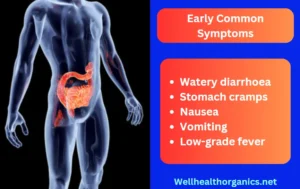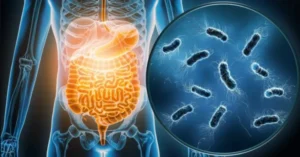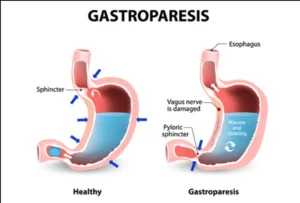Critical signs of gastroenteritis include diarrhoea, vomiting, stomach cramps, and fever. These symptoms can lead to dehydration.
Gastroenteritis, often called stomach flu, is an inflammation of the stomach and intestines. Viruses, bacteria, or parasites cause it. Familiar sources include contaminated food or water. Gastroenteritis spreads quickly, especially in crowded places. Symptoms usually appear within 1-3 days of exposure.
They include nausea, vomiting, diarrhoea, stomach cramps, and sometimes fever. Proper hygiene and sanitation are crucial in preventing the spread of gastroenteritis. Staying hydrated and getting rest is essential for recovery. Seek medical attention if symptoms are severe or persistent. Understanding these key signs can help in early detection and treatment.
Contents
Introduction To Gastroenteritis
Gastroenteritis is an infection of the stomach and intestines that often leads to diarrhoea, vomiting, and stomach pain. It is commonly known as the stomach flu. Various viruses, bacteria, and parasites can cause gastroenteritis.
Gastroenteritis spreads through contaminated food and water. It can also pass from person to person. The illness usually lasts for a few days but can sometimes last longer. Understanding its signs is vital to managing it early.
Early Signs Of Gastroenteritis

Recognizing early signs can help you take action quickly. Here are some common early symptoms:
- Watery diarrhoea
- Stomach cramps
- Nausea
- Vomiting
- Low-grade fever
These symptoms can appear within hours of exposure. They vary in intensity depending on the cause and the person’s health.
Importance Of Timely Recognition
Timely recognition of gastroenteritis can prevent complications. Severe dehydration is one of the main risks. Recognizing symptoms early helps you stay hydrated.
Early treatment can also reduce the spread of the infection. Isolating yourself can protect others from getting sick.
Being aware of these signs helps you seek medical care if needed. Early medical intervention can lead to quicker recovery.
| Symptom | Importance |
| Diarrhea | This can lead to dehydration |
| Vomiting | Affects nutrient absorption |
| Fever | Indicates infection |
Causes And Risk Factors
Understanding the causes and risk factors of gastroenteritis is vital. This information can help you prevent the condition. Gastroenteritis results from various sources, including viruses, bacteria, and specific environments. Below, we explore the fundamental causes and those at higher risk.
Common Viruses And Bacteria

Gastroenteritis often comes from viruses and bacteria. Here are the main culprits:
- Norovirus: This virus spreads in crowded places. Common in schools and cruise ships.
- Rotavirus: It affects primarily young children. Spread through contaminated hands and objects.
- Salmonella: Found in undercooked eggs and poultry. It can cause severe symptoms.
- coli: Linked to contaminated food and water. Often found in raw vegetables and meat.
- Campylobacter: Comes from raw or undercooked poultry. It can also come from unpasteurized milk.
High-risk Groups And Settings
Some groups and settings have a higher risk of gastroenteritis:
- Young Children: Their immune systems are still developing.
- Older Adults: Weaker immune systems make them more vulnerable.
- Travelers: Exposure to new bacteria in different countries.
- Individuals with Weak Immune Systems Include those with chronic illnesses.
- Daycare Centers: Close contact spreads germs quickly.
- Nursing Homes: High population density increases risk.
- Hospitals: Frequent exposure to various infections.
Symptoms To Watch For
Gastroenteritis, also known as the stomach flu, can affect anyone. Recognizing the symptoms early can help in managing the condition effectively. Here are vital symptoms you should watch for.
Typical Onset Of Symptoms
Symptoms often appear suddenly. They can start within hours of infection. Typical signs include:
- Nausea
- Vomiting
- Diarrhea
- Abdominal cramps
These symptoms can last from a day to over a week. In some cases, people may also experience:
- Fever
- Headache
- Muscle aches
Variations In Severity And Presentation
Not all cases of gastroenteritis are the same. Symptoms can vary in intensity.
| Severity | Symptoms |
| Mild | Occasional nausea, mild cramps, loose stools |
| Moderate | Frequent vomiting, persistent diarrhoea, moderate cramps |
| Severe | High fever, severe dehydration, intense abdominal pain |
In severe cases, medical attention is crucial. Dehydration can be life-threatening, especially in children and older people. Look out for signs like:
- Dry mouth
- Decreased urination
- Dizziness
Constantly monitor symptoms closely. Early detection and treatment can make a big difference.
Transmission And Prevention
Understanding the transmission and prevention of gastroenteritis is crucial. This will help reduce its spread and protect your health. Let’s examine the key routes of transmission and effective preventive measures.
Routes Of Gastroenteritis Spread
Gastroenteritis spreads through various routes. Knowing these helps you take the proper precautions.
| Route | Description |
| Person-to-Person Contact | Close contact with an infected person can spread germs. |
| Contaminated Food | Eating food prepared by an infected person can cause infection. |
| Contaminated Water | Drinking or using unclean water can lead to gastroenteritis. |
| Surface Contact | Touching contaminated surfaces and then touching your mouth. |
Effective Preventive Measures
Preventing gastroenteritis involves simple yet effective steps. Follow these to stay healthy.
- Hand Hygiene: Wash hands with soap for at least 20 seconds.
- Food Safety: Cook food thoroughly and store it properly.
- Clean Water: Drink and use water from safe sources.
- Sanitize Surfaces: Regularly clean and disinfect surfaces.
By understanding the transmission routes and adopting preventive measures, you can protect yourself and your loved ones from gastroenteritis.
Diagnostic Approaches
Diagnosing gastroenteritis involves various steps. These steps help doctors confirm the illness. Accurate diagnosis is essential for effective treatment. Here are critical diagnostic approaches to consider:
Clinical Assessment
The first step is a clinical assessment. Doctors ask about symptoms. They check for signs like:
- Frequent diarrhoea
- Vomiting
- Abdominal cramps
- Fever
- Dehydration
They also ask about recent food intake and travel history, which is essential to pinpointing the cause.

Laboratory Tests And Confirmation
Laboratory tests are crucial. These tests confirm the diagnosis. Common tests include:
- Stool sample analysis
- Blood tests
- Urine tests
Stool samples help identify bacteria or viruses. Blood tests check for dehydration signs. Urine tests assess kidney function.
Sometimes, doctors use imaging tests. These include:
- Abdominal X-rays
- Ultrasound
Imaging tests detect other issues. They rule out conditions like appendicitis. Accurate diagnosis leads to effective treatment.
Treatment Strategies
Gastroenteritis can be distressing. Effective treatment strategies help ease symptoms. Let’s explore some practical approaches to manage this condition.
Home Care Recommendations
Home care plays a vital role in treating gastroenteritis. Here are some tips to follow:
- Stay Hydrated: Drink clear fluids like water, broth, or oral rehydration solutions.
- Rest: Ensure ample rest to help the body recover.
- Eat Light: Consume bland foods like bananas, rice, applesauce, and toast.
- Avoid Dairy: Dairy products may worsen symptoms.
- Practice Good Hygiene: Wash hands frequently to prevent the spread of infection.
These simple measures can provide relief and support recovery.
When To Seek Medical Attention
Sometimes, more than home care is needed. It’s crucial to know when to seek medical attention:
| Symptoms | Action |
| Severe Dehydration | Visit a doctor immediately. |
| High Fever | Consult a healthcare provider. |
| Bloody Stool | Seek urgent medical care. |
| Persistent Vomiting | Get professional help. |
| Severe Abdominal Pain | Contact a doctor. |
Recognizing these signs can prevent complications and ensure proper treatment.
Complications Of Delayed Treatment
Gastroenteritis can be very serious if not treated quickly. Delaying treatment can lead to several complications. It is essential to know these risks to stay safe.
Dehydration And Its Dangers
Dehydration happens when your body loses more fluids than it takes in. This can occur if gastroenteritis symptoms last too long. Symptoms of dehydration include:
- Dry mouth and throat
- Dark yellow urine
- Fatigue and dizziness
Severe dehydration can lead to serious health issues. It can cause kidney problems or even shock. Drinking fluids is crucial to prevent dehydration.

Potential For Chronic Conditions
Ignoring gastroenteritis can lead to chronic health problems. Some people may develop irritable bowel syndrome (IBS). Symptoms of IBS include:
- Abdominal pain
- Bloating
- Diarrhea or constipation
Long-term complications can affect your daily life. It is better to seek treatment early to avoid these issues.
| Complication | Symptoms |
| Dehydration | Dry mouth, dark urine, fatigue |
| Chronic Conditions | Abdominal pain, bloating, diarrhoea |
Conclusion
Recognizing the critical signs of gastroenteritis can help you seek timely treatment. Stay informed and prioritize your health. Regular check-ups and a balanced diet can prevent many digestive issues. Remember, early detection is crucial for effective management. For more health tips, visit Wellhealthorganics.net.










